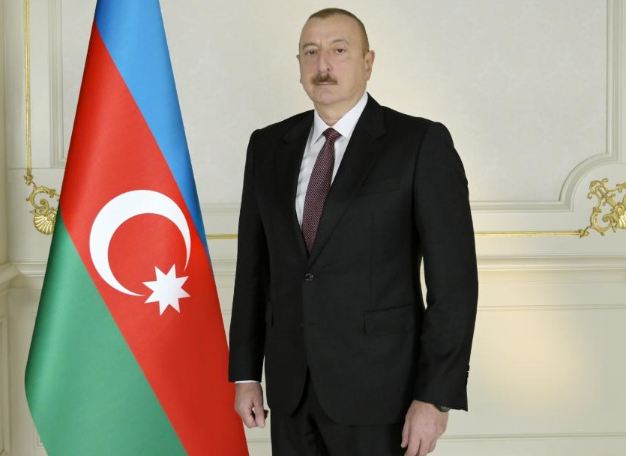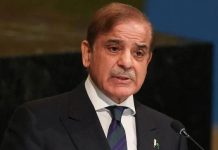BAKU, MAR 6 /DNA/ – President Ilham Aliyev has welcomed participants to the international conference “Embracing Diversity: Tackling Islamophobia in 2024” held in Baku. The event, coinciding with the approaching holy month of Ramadan and the International Day to Combat Islamophobia, carries profound significance. Aliyev emphasized the importance of addressing Islamophobia and fostering diversity.
Regrettably, Islamophobia trends across the world are on the rise. We are witnessing the portrayal of Islam as a potential threat, with doubt, discrimination and open hatred against the Muslims becoming increasingly widespread with each passing day. As stated in the UN resolution on the International Day to Combat Islamophobia, rise in instances of discrimination, intolerance and violence directed against religious communities are the source of concern.
It is deplorable that today, Islamophobia has become integrated into the state policies of numerous Western countries that consider themselves democratic. These countries account for 80 percent of all the manifestations of Islamophobia that occurred around the world in the last year. In some European countries where Islamophobia has skyrocketed and been promoted as an official ideology, such insulting actions as the burning of our holy book of Quran and publishing caricatures of the Prophet Mohammad, are presented as the freedom of speech. France, along its traditional neocolonialism policy, is pursuing a policy of open pressure and discrimination, staging various Islamophobic campaigns. Legislative acts and political decisions that exclusively target Muslims, limiting their rights and freedoms, are often disguised as secularism. In this country, mosques, Muslim community centers and cemeteries are desecrated in one way or another, and Muslim citizens endure oppression.
Instead of combatting these manifestations that insult the feelings of the Muslims and holding the perpetrators accountable, the governments of those countries are inflaming the Islamophobic sentiments, encouraging the persecution of Muslims and aiming to keep these subjects high on the agenda. Unfortunately, certain Western institutions that also portray themselves as democratic are engaging in anti-Islamic activities. Today, the European Parliament and the Parliamentary Assembly of the Council of Europe have become platforms that promote İslamophobia and pursue policies based on this ideology.
The present negative trend is also evident in the operations of some global media entities. They deliberately target Islamic faith and Islamic culture, distort the true essence of Islam, trying to equate it with terrorism and smear it. We strongly condemn these trends that increasingly aim to tarnish our religion. Looking at a world map, we can see that Muslims are the ones that suffer from terrorism the most.
Azerbaijan is also a country that suffers from Islamophobia. Among the dire consequences of Armenia’s 30-year long occupation of our lands was a deliberate destruction and annihilation of our cultural heritage of universal value, including the monuments associated with the Islamic faith. While initial estimates suggested that 65 mosques had been razed to the ground during the occupation, unfortunately, that number is steadily increasing as numerous new examples of Armenian vandalism against Islamic heritage continue to emerge.
Furthermore, discoveries have been made regarding the hundreds of Muslim cemeteries razed to the ground, with the deliberate alteration and falsification of the designation of Muslim places of worship, mosques, and tombs. In most cases, these sites were used as barns for animals considered haram in our religion. Such offensive actions insult not only our feelings but also those of the Muslims of the world. In the meantime, destruction of Azerbaijan’s Islamic historical and cultural heritage in Armenia is regrettable. Azerbaijan has raised this matter with UNESCO, calling for a technical mission to be sent to that country for assessing the conditions of our cultural and religious sites subjected to destruction in Armenia for years. Unfortunately, to this day, UNESCO is yet to respond to our request.
We take pride in Azerbaijan being a multinational and multiconfessional country. Representatives of all religions and ethnic groups live here in peace as one family. Religious equality and inclusivity, safeguarded in our country as an asset, embody the way of life for the Azerbaijani people, serving as a source of strength. Stemming from that, it is only natural that respect for multicultural values constitutes one of priority directions of our state policies.
On the global scale as well, our country is doing its utmost to encourage and promote peace, peaceful coexistence, and humanism values. Azerbaijan supports harmonic relations among diverse cultures, and spearheads numerous global initiatives focused on intercivilizational and intercultural dialogue to foster mutual understanding. A vivid testimony to that is the long-standing tradition of hosting the World Forum on Intercultural Dialogue in Baku in May.
In the XXI century there must be no place for Islamophobia, xenophobia or racism. Associating terrorism and extremism with any civilization or ethnic group is an erroneous approach. Using religion for political motives only serves to divide and incite confrontation in the societies. Such manifestations also deprive the humankind from the ideals of humanism and universal values, ultimately resulting in intercivilizational conflicts.
Today’s event showcases Azerbaijan’s determination to combat Islamophobia as one of the challenges of the modern era. I am confident that this conference will make a contribution to concerted efforts in combatting Islamophobia, and generating fresh initiatives aimed at promoting the culture of tolerance and peace founded on respect for religious and faith diversity.
I extend my best wishes to you and wish conference success.

















